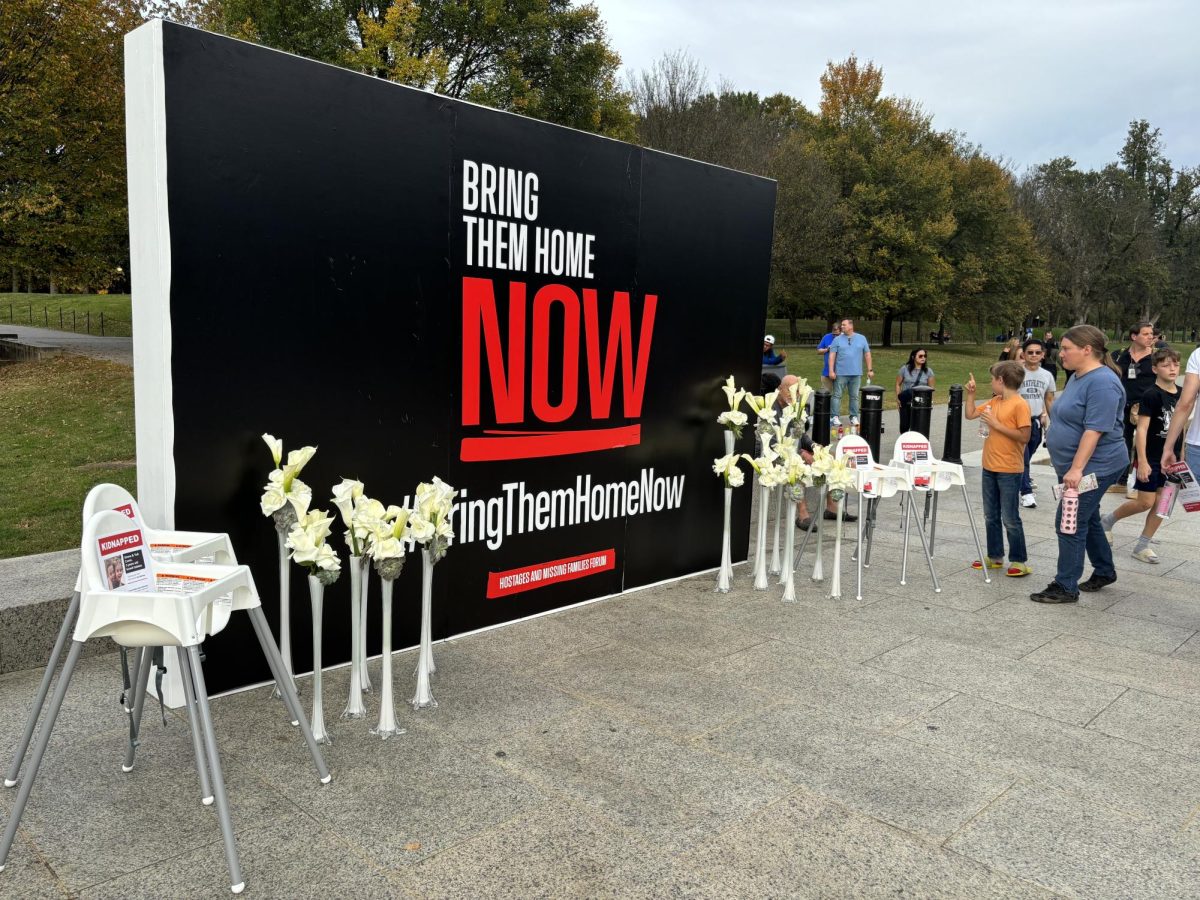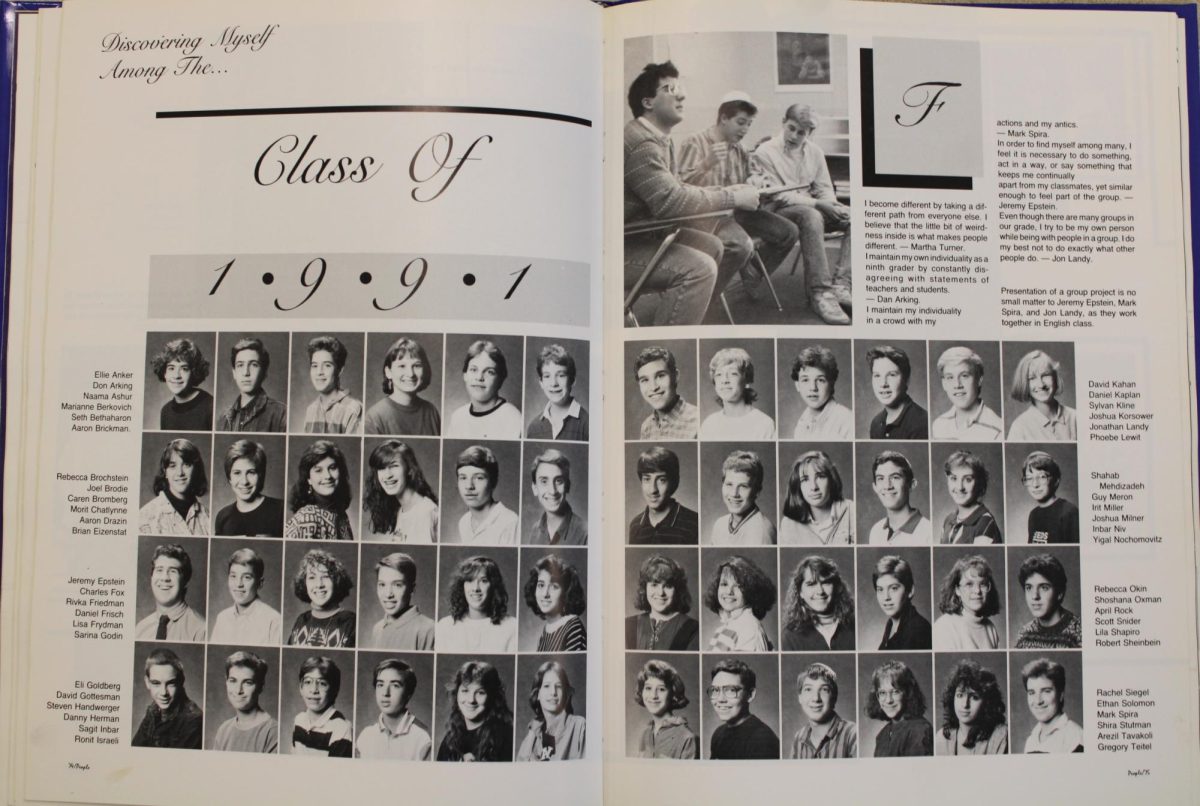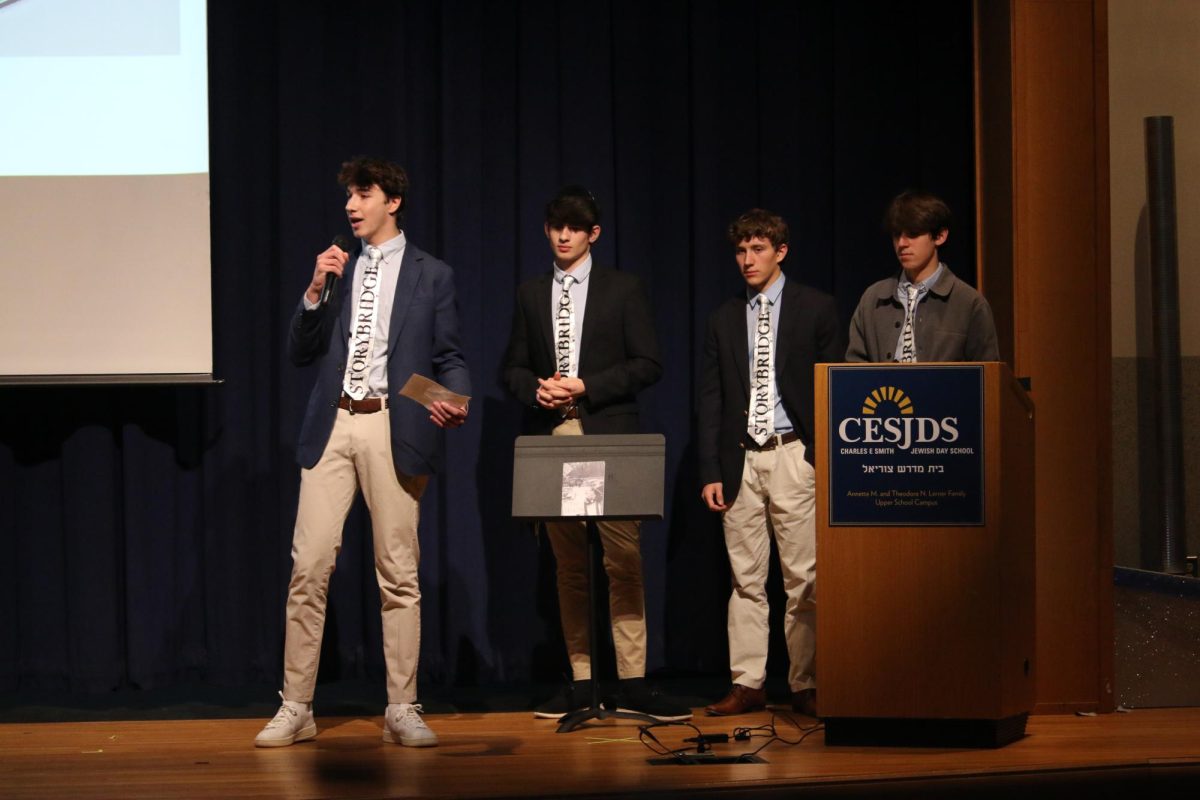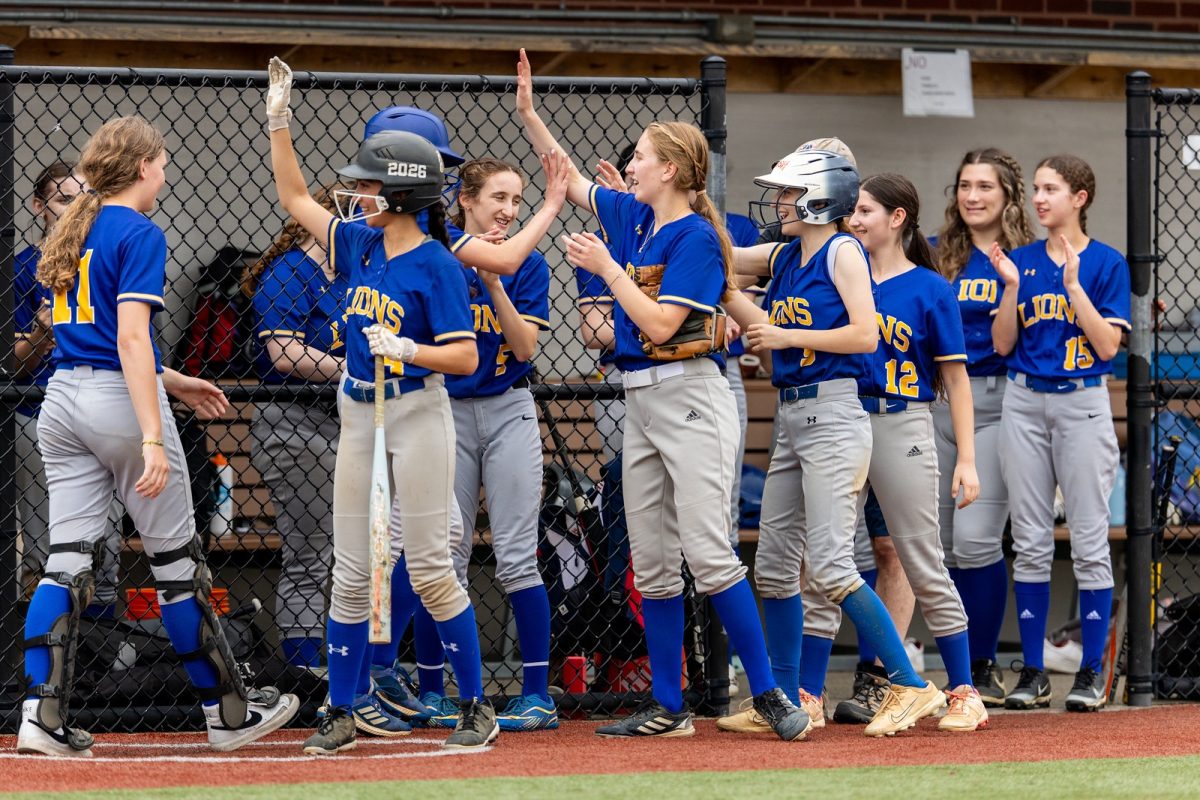Four high chairs and over 100 empty chairs surrounded a Shabbat table set in front of the Lincoln Memorial, representing the hostages in Gaza who cannot enjoy Shabbat. The empty chairs represented only about half of the hostages taken by Hamas who are yet to be returned. The DC Jewish community gathered in solemn memory of those taken on Oct. 7, hoping for their quick return. People waved flags from many countries whose citizens had been abducted.
During the event, families of hostages spoke about their missing loved ones and flyers bearing their names and pictures were distributed. Attendees were asked to share the flyers to spread awareness and to recognize the individuals taken.
“They asked us to put [the flyers of the captives] up in the air and to show the world how many and who [they are],” sophomore and Israeli Shahar Levi said. “I thought it was really meaningful to show each and every one of the kidnapped.”
Prayers for peace and for soldiers, as well as Shabbat melodies, were sung in honor of the hostages.
During the singing of the traditional Shabbat song, Shalom Alechem, the people gathered sang a fifth stanza, “shuvchem l’shalom” praying that the hostages should return in peace.
Rabbi Corey Helfand of Ohr Kodesh helped introduce and lead prayers for Shabbat with Cantor Hinda Labovitz after the families of hostages spoke.
“It was pretty overwhelming in the sense that…you feel helpless that you can’t do more,” Helfand said. “It’s also overwhelming to see all of those empty chairs as a representation of those who are missing and who we don’t know what’s going on with. It’s pretty hard to believe. ”
The setup of the space provided a visualization of the enormity of the people abducted by Hamas.
“I found it very profound to be able to look around and appreciate both the enormity of that number and also the sheer magnitude of loss of that number,” Helfand said. “And I think the image that they were creating [with] that empty table and those chairs of different shapes and sizes captured it in a way that we often can’t capture in words.”
Levi felt that while the event was extremely meaningful, there was not as much support from the community as she had expected.
“There weren’t many people, and I felt really upset about it,” Levi said. “There weren’t many people supporting the cause of the event like bringing the hostages back. There weren’t many people there, and I thought it would be disrespectful for all the captives and murdered.”
Overall, according to Helfand, the event helped humanize and remember the people who have been taken by Hamas.
“It’s an important reminder that we shouldn’t reduce what’s happening to numbers alone. It’s easy to say there’s 220 plus hostages,” Helfand said. “It’s easy to say that there were 1400 people who were murdered. It’s important that we also remember that each one of those people is a person with a story and a family and people who loved them and cared about them. So much gets lost when we just reduce things to numbers alone.”














